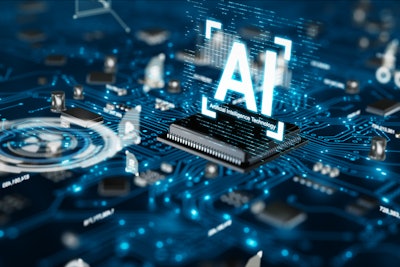
NTT DATA introduced new data that shows manufacturing organizations worldwide are increasingly turning to GenAI to establish smart factories, spur innovation, improve productivity, build resilience and gain competitive advantage.
“AI is streamlining processes and redefining what’s possible across the entire manufacturing value chain, from supply chain predictions to quality control,” says Prasoon Saxena, co-lead, products industries, NTT DATA, Inc. “GenAI can help organizations achieve flexibility in fast-changing business environments, especially in the face of uncertain tariff policies worldwide.”
Key takeaways:
- 95% of respondents said GenAI is already directly improving efficiency and bottom-line performance.
- 94% expect the integration of Internet of Things (i.e., IoT/edge) data into GenAI models will significantly improve the accuracy and relevance of AI-generated outputs.
- 91% say combining digital twins and GenAI will improve both physical asset performance and supply chain resilience.
- Respondents said their most frequent use cases are supply chain and inventory management; knowledge management; quality control; research and development; and process automation.
- Infrastructure: 92% of manufacturers said old technologies hinder vital initiatives, but less than half have conducted a full infrastructure readiness assessment.
- Complementary technologies: 94% expect the integration of Internet of Things (i.e., IoT/edge) data into GenAI models will significantly improve the accuracy and relevance of AI-generated outputs, yet not all are confident in their ability to complete such integrations.
- Responsible frameworks: While ethical AI is on the radar, only 47% of manufacturing leaders strongly agree their organization follows a robust framework that balances risk with value creation.
- Workforce readiness: Two-thirds of manufacturers say their employees lack the necessary skills to use GenAI effectively, creating functional and operational disadvantage and risk.
- Data management: Just 41% of manufacturers strongly agree they have enough data storage and processing capabilities to support their GenAI workload needs, which will limit success.
















![Pros To Know 2026 [color]](https://img.sdcexec.com/mindful/acbm/workspaces/default/uploads/2025/08/prostoknow-2026-color.mduFvhpgMk.png?ar=16%3A9&auto=format%2Ccompress&bg=fff&fill-color=fff&fit=fill&h=135&q=70&w=240)

